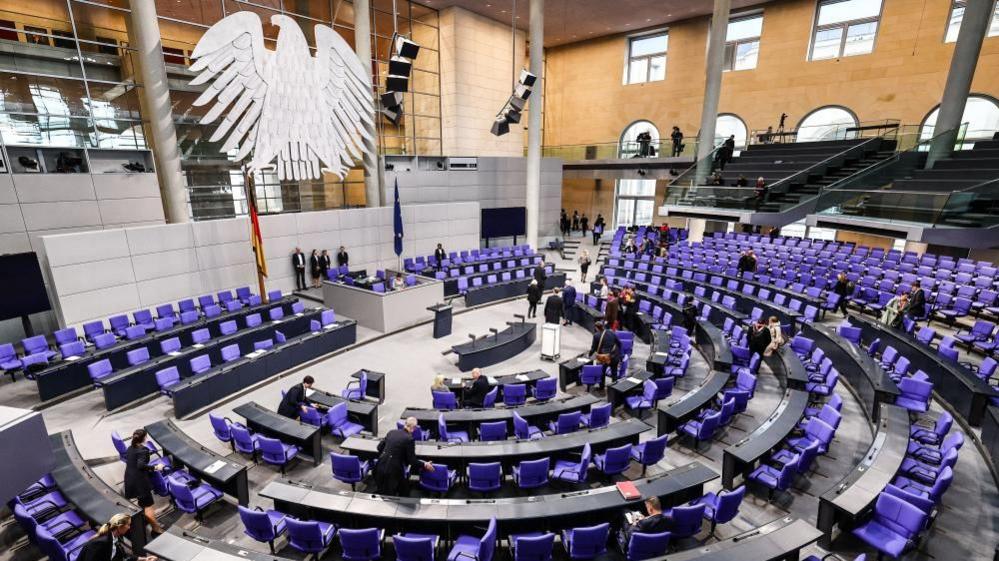Germany plans February election after coalition collapse

The Bundestag are set to vote in December to dissolve the government
- Published
Germany is set to hold elections on 23 February, following the collapse of the governing coalition.
The country was plunged into crisis after Chancellor Olaf Scholz, of the Social Democrats, fired the finance minister and coalition partner, Christian Lindner of the Free Democrats, following weeks of internal tensions.
The February date is a proposal and there are several steps to confirmation. The German press agency DPA reported that these were largely a formality.
It said the next step was for Scholz to put the current government to a confidence vote on 16 December.
If he loses, which is the expected outcome, the election date will formally be proposed to President Frank-Walter Steinmeier. He will then have 21 days to dissolve the German parliament, the Bundestag.
Tensions boiled over in the Bundestag last Wednesday during a row over the 2025 budget.
The chancellor fired Lindner, saying he had "betrayed my confidence" and put the interests of his party over those of the country.
Lindner accused Scholz of "leading Germany into a phase of uncertainty".
The turmoil plunged Europe's largest economy into political chaos, hours after Donald Trump's US election victory triggered uncertainty about the future of the continent's economy and security.
Scholz's initial plan for a no-confidence vote in January and elections in mid-March was rejected by the leader of the opposition Christian Democratic Union, Friedrich Merz, as not soon enough.
The DPA reported that leaders of both main parties agreed the February date, and that the Greens and Free Democrats, the junior coalition partners, support the plan.